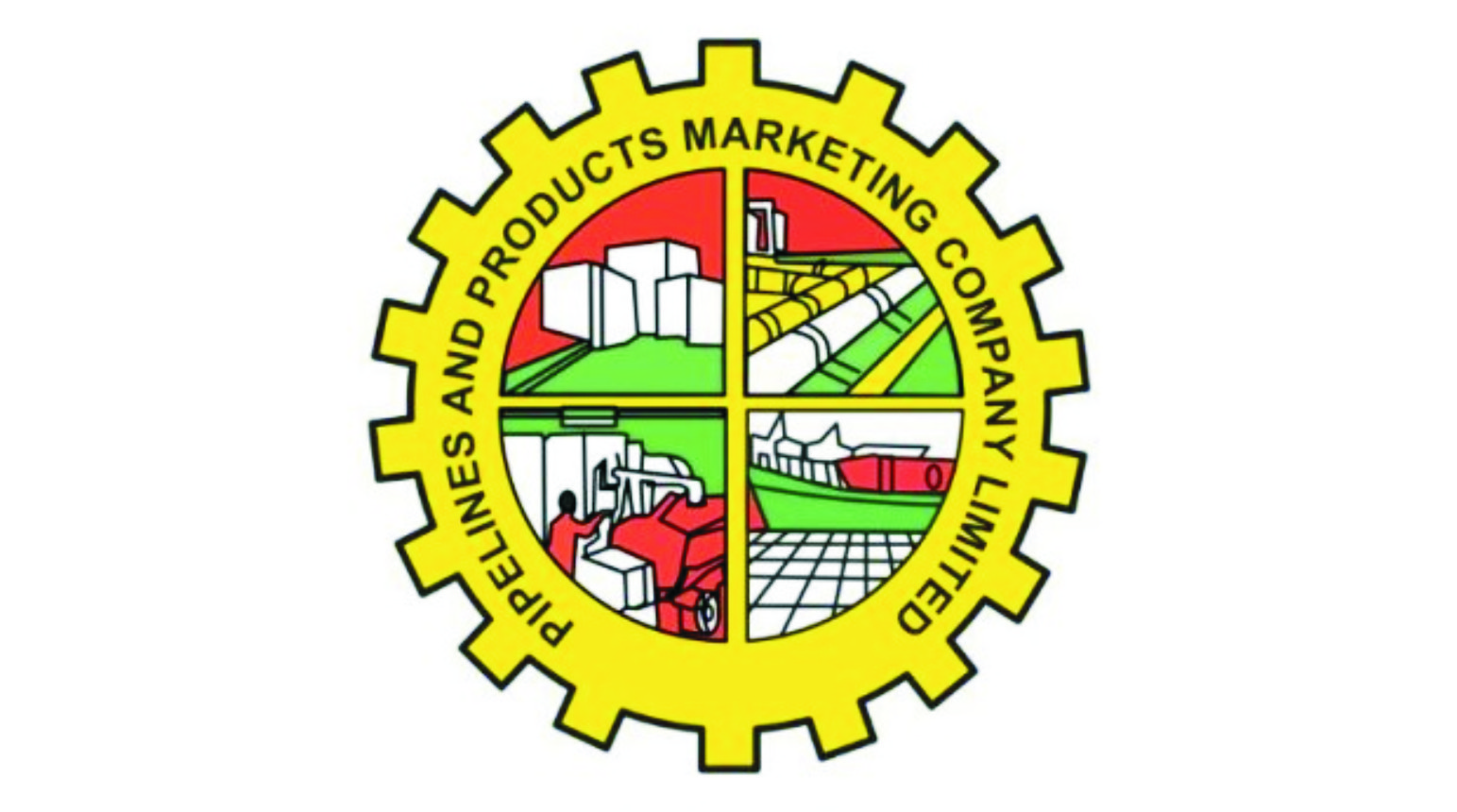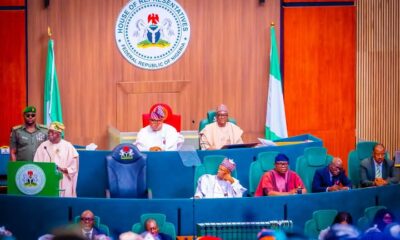Oil & Energy
Ministry Develops Framework On Oil, Gas Pipeline Concession

The Ministry of Petroleum Resources says it has developed a framework for the concessioning of oil and gas pipeline assets.
Permanent Secretary, Ministry of Petroleum Resources, Amb. Gabriel Aduda, disclosed this at a workshop in Abuja.
According to a statement by the Director (Information) of the Ministry, Mrs Enefaa Bob-Manuel, the Permanent Secretary was represented by the Director, Midstream, Ministry of Petroleum Resources, Mr Felix Okeke.
Aduda said the role of pipeline in fluid transport could not be overemphasised, adding that the desire of government was to allow for private sector participation in the pipeline segment of the petroleum industry.
He craved for partnership to bridge the infrastructural gap in the segment, especially as the country has adopted gas as her transition fuel and its centrality as a source of energy
He said Nigeria had two crude delivery pipeline networks to the refineries which included; the Escravos-Warri-Kaduna Pipeline system and the Bonny-Port Harcourt pipeline system, all originating from crude export terminals.
“The 5,120 Kilometers of Pipeline Network was also built for the distribution of petroleum products from the four refineries.
“With a capacity of 445, 000 barrels of crude per day to storage depots across the country, and about 3, 000 kilometers of gas pipeline network,” he said.
The Permanent Secretary said over the years, ownership of pipeline assets in the Nigerian Oil and Gas industry had been the exclusive preserve of government.
This project, he noted, was conceived with the intention to bring private investors to operate pipeline assets as it was the desire of the ministry to develop a framework for easy and efficient concessioning of oil and gas pipelines.
According to him, this will enable private companies to design, construct and operate pipeline infrastructure.
In a remark, Mr Joe Nwakwue, Partner, Zera Advisory and Consulting, said that the quality of service depended on the cost and reliability of the product, hence delivery of the product was of essence to national growth and development.
He urged the government to consider upgrading the pipeline Master Plan which was developed by the Nigerian National Petroleum Company Limited (NNPCL) twenty years ago.
He underscored the need for the ministry to rewrite the existing Master plan and to own it as it would facilitate the attainment of the Ministry’s mandate of ensuring an enabling environment for investors.
Nwakwue said that concessions could enable competition for the market (as opposed to competition in the market).
The Assistant Director, Midstream Department, Mrs Olamide Adewale in her remarks sued for cooperation in making the Pipeline concessioning a success.
Oil & Energy
FG Woos IOCs On Energy Growth
The Federal Government has expressed optimism in attracting more investments by International Oil Companies (IOCs) into Nigeria to foster growth and sustainability in the energy sector.
This is as some IOCs, particularly Shell and TotalEnergies, had announced plans to divest some of their assets from the country.
Recall that Shell in January, 2024 had said it would sell the Shell Petroleum Development Company of Nigeria Limited (SPDC) to Renaissance.
According to the Minister of State for Petroleum Resources (Oil), Heineken Lokpobiri, increasing investments by IOCs as well as boosting crude production to enhancing Nigeria’s position as a leading player in the global energy market, are the key objectives of the Government.
Lokpobiri emphasized the Ministry’s willingness to collaborate with State Governments, particularly Bayelsa State, in advancing energy sector transformation efforts.
The Minister, who stressed the importance of cooperation in achieving shared goals said, “we are open to partnerships with Bayelsa State Government for mutual progress”.
In response to Governor Douye Diri’s appeal for Ministry intervention in restoring the Atala Oil Field belonging to Bayelsa State, the Minister assured prompt attention to the matter.
He said, “We will look into the issue promptly and ensure fairness and equity in addressing state concerns”.
Lokpobiri explained that the Bayelsa State Governor, Douyi Diri’s visit reaffirmed the commitment of both the Federal and State Government’s readiness to work together towards a sustainable, inclusive, and prosperous energy future for Nigeria.
While speaking, Governor Diri commended the Minister for his remarkable performance in revitalisng the nation’s energy sector.
Oil & Energy
Your Investment Is Safe, FG Tells Investors In Gas
The Federal Government has assured investors in the nation’s gas sector of the security and safety of their investments.
Minister of State for Petroleum Resources (Gas), Ekperikpe Ekpo, gave the assurance while hosting top officials of Shanghai Huayi Energy Chemical Company Group of China (HUAYI) and China Road and Bridge Corporation, who are strategic investors in Brass Methanol and Gas Hub Project in Bayelsa State.
The Minister in a statement stressed that Nigeria was open for investments and investors, insisting that present and prospective foreign investors have no need to entertain fear on the safety of their investment.
Describing the Brass project as one critical project of the President Bola Tinubu-led administration, Ekpo said.
“The Federal Government is committed to developing Nigeria’s gas reserves through projects such as the Brass Methanol project, which presents an opportunity for the diversification of Nigeria’s economy.
“It is for this and other reasons that the project has been accorded the significant concessions (or support) that it enjoys from the government.
“Let me, therefore, assure you of the strong commitment of our government to the security and safety of yours and other investments as we have continually done for similar Chinese investments in Nigeria through the years”, he added.
Ekpo further tasked investors and contractors working on the project to double their efforts, saying, “I want to see this project running for the good of Nigeria and its investors”.
Earlier in his speech, Leader of the Chinese delegation, Mr Zheng Bi Jun, said the visit to the country was to carry out feasibility studies for investments in methanol projects.
On his part, the Managing Director of Brass Fertiliser and Petrochemical Ltd, Mr Ben Okoye, expressed optimism in partnering with genuine investors on the project.
Oil & Energy
Oil Prices Record Second Monthly Gain
Crude oil prices recently logged their second monthly gain in a row as OPEC+ extended their supply curb deal until the end of Q2 2024.
The gains have been considerable, with WTI adding about $7 per barrel over the month of February.
Yet a lot of analysts remain bearish about the commodity’s prospects. In fact, they believe that there is enough oil supply globally to keep Brent around $81 this year and WTI at some $76.50, according to a Reuters poll.
Yet, like last year in U.S. shale showed, there is always the possibility of a major surprise.
According to the respondents in that poll, what’s keeping prices tame is, first, the fact that the Red Sea crisis has not yet affected oil shipments in the region, thanks to alternative routes.
The second reason cited by the analysts is OPEC+ spare capacity, which has increased, thanks to the cuts.
“Spare capacity has reached a multi-year high, which will keep overall market sentiment under pressure over the coming months”, senior analyst, Florian Grunberger, told Reuters.
The perception of ample spare capacity is definitely one factor keeping traders and analysts bearish as they assume this capacity would be put into operation as soon as the market needs it. This may well be an incorrect assumption.
Saudi Arabia and OPEC have given multiple signs that they would only release more production if prices are to their liking, and if cuts are getting extended, then current prices are not to OPEC’s liking yet.
There is more, too. The Saudis, which are cutting the most and have the greatest spare capacity at around 3 million barrels daily right now, are acutely aware that the moment they release additional supply, prices will plunge.
Therefore, the chance of Saudi cuts being reversed anytime soon is pretty slim.
Then there is the U.S. oil production factor. Last year, analysts expected modest output additions from the shale patch because the rig count remained consistently lower than what it was during the strongest shale boom years.
That assumption proved wrong as drillers made substantial gains in well productivity that pushed total production to yet another record.
Perhaps a bit oddly, analysts are once again making a bold assumption for this year: that the productivity gains will continue at the same rate this year as well.
The Energy Information Administration disagrees. In its latest Short-Term Energy Outlook, the authority estimated that U.S. oil output had reached a record high of 13.3 million barrels daily that in January fell to 12.6 million bpd due to harsh winter weather.
For the rest of the year, however, the EIA has forecast a production level remaining around the December record, which will only be broken in February 2025.
Oil demand, meanwhile, will be growing. Wood Mackenzie recently predicted 2024 demand growth at 1.9 million barrels daily.
OPEC sees this year’s demand growth at 2.25 million barrels daily. The IEA is, as usual, the most modest in its expectations, seeing 2024 demand for oil grow by 1.2 million bpd.
With OPEC+ keeping a lid on production and U.S. production remaining largely flat on 2023, if the EIA is correct, a tightening of the supply situation is only a matter of time. Indeed, some are predicting that already.
Natural resource-focused investors Goehring and Rozencwajg recently released their latest market outlook, in which they warned that the oil market may already be in a structural deficit, to manifest later this year.
They also noted a change in the methodology that the EIA uses to estimate oil production, which may well have led to a serious overestimation of production growth.
The discrepancy between actual and reported production, Goehring and Rozencwajg said, could be so significant that the EIA may be estimating growth where there’s a production decline.
So, on the one hand, some pretty important assumptions are being made about demand, namely, that it will grow more slowly this year than it did last year.
This assumption is based on another one, by the way, and this is the assumption that EV sales will rise as strongly as they did last year, when they failed to make a dent in oil demand growth, and kill some oil demand.
On the other hand, there is the assumption that U.S. drillers will keep drilling like they did last year. What would motivate such a development is unclear, besides the expectation that Europe will take in even more U.S. crude this year than it already is.
This is a much safer assumption than the one about demand, by the way. And yet, there are indications from the U.S. oil industry that there will be no pumping at will this year. There will be more production discipline.
Predicting oil prices accurately, even over the shortest of periods, is as safe as flipping a coin. With the number of variables at play at any moment, accurate predictions are usually little more than a fluke, especially when perceptions play such an outsized role in price movements.
One thing is for sure, though. There may be surprises this year in oil.
lrina Slav
Slav writes for Oilprice.com.
-

 Featured5 days ago
Featured5 days agoFG Suspends Max Air Operations For Three Months Over Kano Incident
-
Nation5 days ago
Rivers CP Eulogises LG Boss Over Donation Of Vehicles
-
Politics5 days ago
Assembly Declares Lawmaker’s Seat Vacant Over Alleged Absenteeism
-
Business5 days ago
Aviation Stakeholders Raise Alarm Over NCAA Appointment Saga …Harp On Safety
-
Opinion5 days ago
Fubara @ 50: Golden Sparkles And Magic Bullet
-

 Featured5 days ago
Featured5 days agoTinubu Seeks Multifaceted Response To Terrorism, Other Security Threats
-
Nation5 days ago
N4bn Seized Assets, Arrest Of Kano Anti-Corruption Chair, Magaji, Raise Fresh Dust
-
Politics5 days ago
Celebrate Patriotic Citizens, Not Corrupt Politicians, Babalola Tells FG, States

